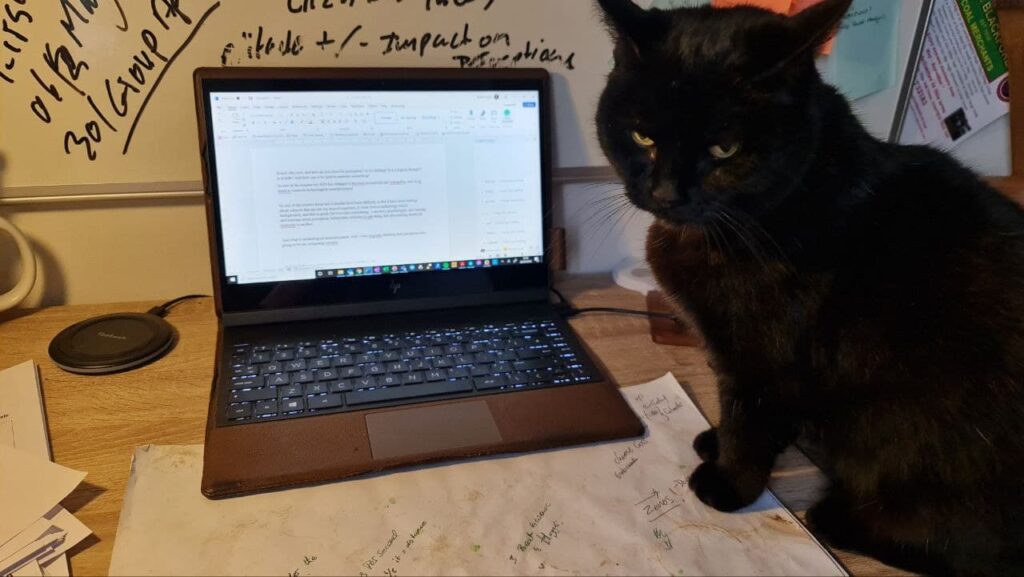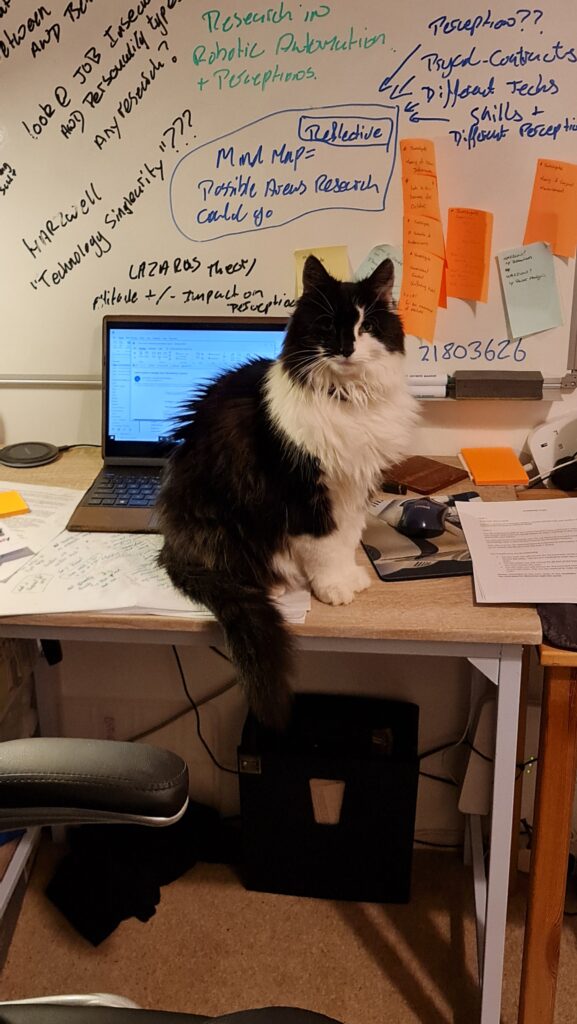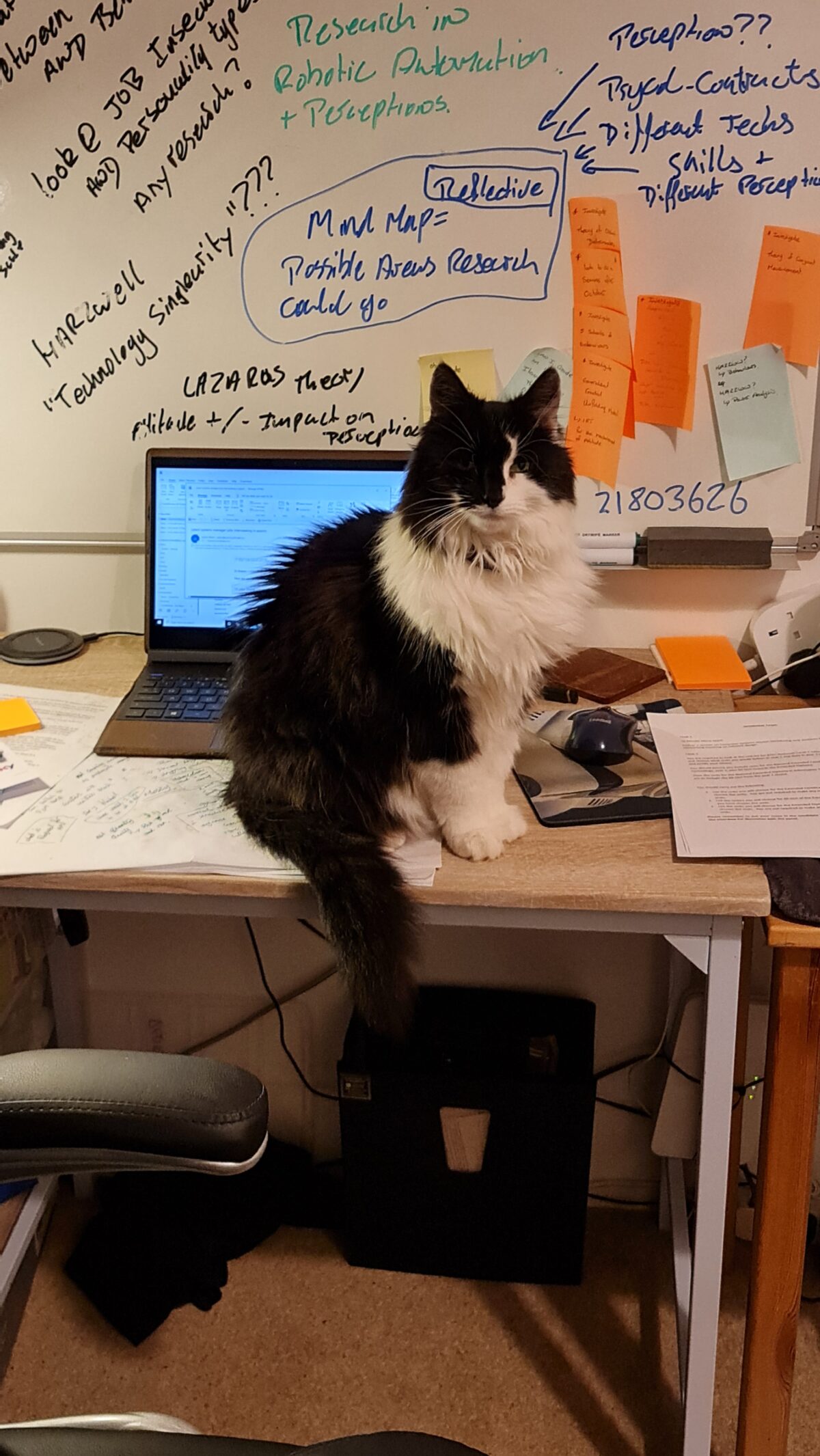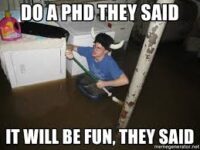Change is as good as a rest
When I started this blog, I expressed my desire that I would be investigating news and academic articles that examined technological unemployment, AI, technological automation and other surrounding subjects.
Well, the last time I published was in September of 2021, when I had only just moved in with my partner, and since then a lot has happened.
But first, let me backtrack a bit, I started my PhD in February of 2021, with high hopes and high expectations of myself, but in June of 2021, I merged two houses, or as it is more commonly known moved in with my girlfriend.
So new house, new routines, a new person and another cat to take into account, and well just new, nothing wrong with that at all, but dealing with new takes time, effort and energy.


So 4 months into the start of my PhD I moved house, all the advice I have been given is “do not move house or change your job in the last year of your PhD studies”, I would completely agree with that, but add, do not move house within the first year of your studies.
Why? Well, those first few months of a PhD you are creating routines of reading and writing, creating and managing the relationship with your supervisors, and well actually figuring out what you are investigating, all of which takes time.
So what else has changed, well Covid, (but not going to bore you with that, and we all have been living through it), and a change in my PhD.
Why have I named this blog “Change is as good as a rest”? Well, in some situations that is very true, but we all understand that change comes with risks and demands of its own.
In February, I am about to have my work examined through my first Annual Project Review (ARP), and complete my first year. I am looking forward to it with some trepidation, but now I have all of my requirements handed in, I have had some time and brain space to reflect.

Being aware that I have not been a prolific blogger, I have decided to add blogs about things that are happening within my PhD, and my jaunt through this academic wonderland, as well as continuing to scrutinise news and research articles.

So this is the first of a mix of blogs discussing technological unemployment, technological job insecurity, Artificial Intelligence, and any other subject that could be of interest, with blogs that discuss what is happening in my PhD.
So as they say a change is as good as a rest, and I hope that this will allow me to blog more than I have been doing.
Ah before I forget, you may have one question, you may not, but going to answer it anyway.
Yes, I did say that my PhD had changed, the subject is still the same, but how I will arrive at that answer is changed. (It may change again)
Originally I was investigating the perception of technological unemployment when tasks have been technologically automated.

Sound silly now, but how do you describe perception? Is it a feeling? Is it a logical thought? Is it both? And how can it be used to measure something?

So one of the reasons my PhD has changed is because perceptions are intangible, and so to try and gain an understanding of perceptions, I needed to do some reading, and well subjects like personalities, psychological contracts, Counterproductive work behaviours, behaviours, attitudes and job insecurity are more psychologically based, however, I am not a psychologist! And so the learning curve has been sharp.
So this is where my PhD is now, I am still researching technological automation, but examining it through the lens of job insecurity, and personality, in other words, the perception that our job is at threat, versus the actual event of job loss.

So this is now my research objective
Examine and interpret workers perceptions of job insecurity (White collar and service industries) when tasks or sets of tasks are technologically automated.
PS if anyone is in the Hotelier or service industry would like to talk about this with me, I am more than happy to
My next blog is one that I have been wanting to do for a little while and it is about some research that investigated STARA. If we have knowledge and experience of technology, does it reduce the fear of technological unemployment or reduce job insecurity?





